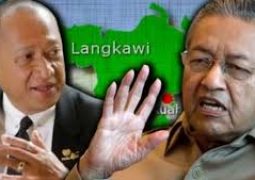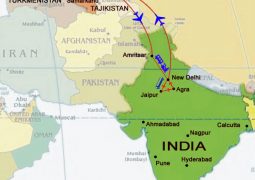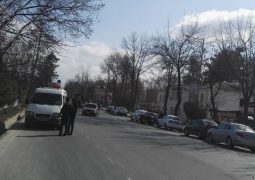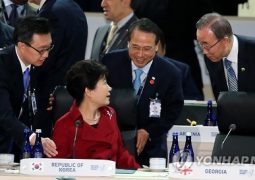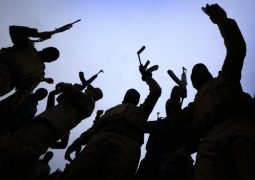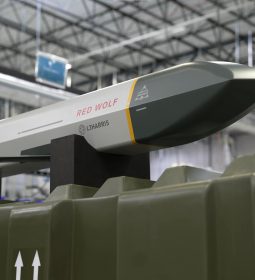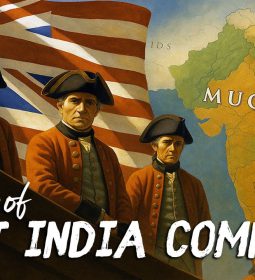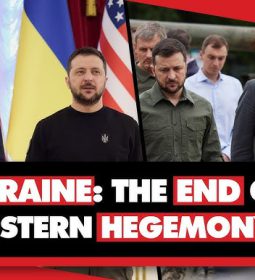Manila deploys commandoes, helicopters to retake city from Islamists

The Philippines mobilized attack helicopters and special forces to drive Islamic State-linked rebels out of a besieged southern city on Thursday, with six soldiers killed in street combat amid heavy resistance.
Ground troops hid behind walls and armored vehicles and exchanged volleys of gunfire with Maute group fighters, shooting into elevated positions occupied by militants who have held Marawi City on Mindanao island for two days.
Helicopters circled the city, peppering Maute positions with machine gun fire to try to force them from a bridge vital to retaking Marawi, a mainly Muslim city of 200,000 where fighters had torched and seized a school, a jail and a cathedral, and took more than a dozen hostages.
“Our troops are doing deliberate operations in areas we believe are still occupied or infested with the terrorist presence,” said the head of the task force, Brigadier General Rolly Bautista.
The battles with the Maute group, which has pledged allegiance to Islamic State, started on Tuesday during a failed raid by security forces on one of the group’s hideouts that spiraled into chaos.
Eighteen rebels were killed on Thursday, the army said.
The turmoil was the final straw for President Rodrigo Duterte, who on Tuesday delivered on his longstanding threat to impose martial law on Mindanao, the country’s second-largest island, to stop the spread of radical Islam.
“If there’s an open defiance you will die,” he said on Wednesday. “And if it means many people dying, so be it.”
At least 46 people – 15 security forces and 31 rebels – have been killed and religious leaders say militants were using Christians taken hostage during the fighting as human shields. The status of those hostages was not known.
The White House condemned the Maute group as “cowardly terrorists” and said the United States was a proud ally of the Philippines and backed its fight against extremism.
GETTING OUT
Hundreds of civilians had sheltered in a military camp in Marawi City as troops helped clear the few remaining people from streets where smoke lingered in the air.
“We’re leaving,” said a resident named Edith, walking along a rundown street carrying a small suitcase. “We can no longer take it and we need to save our children.”
Sultan Haji Ismael Demasala said he was staying and would leave his fate in God’s hands. “If Allah wills it so, then we cannot stop it,” he said, pointing his finger in the air.
Marawi is located in Lanao del Sur province, a stronghold of the Maute, a fierce, but little-known group that has been a tricky opponent for the military.
Military leaders say the Maute’s motivation for taking the city was to raise its profile and earn recognition from Islamic State.
Tuesday’s raid was aimed at capturing Isnilon Hapilon, a leader of radical faction of another militant group, the Abu Sayyaf. The government says Hapilon is a point man for Islamic State in the Philippines and has been collaborating with the Maute leaders.
“Based on our intelligence, Isnilon Hapilon is still in the city,” said Jo-Ar Herrera, spokesman for the First Infantry Regiment.
The Maute group’s rise is a source of concern for Mindanao native Duterte, who is familiar with Muslim separatist unrest but alarmed by the prospect of rebels helping Islamic State to recruit and establish a presence in the volatile region of 22 million people.
The president held a cabinet meeting on Thursday in Davao, his home city and the biggest on Mindanao.
Security was stepped up in Davao, with more military checkpoints and some businesses sending staff home during daylight hours. Residents were urged to stay vigilant.
In the city where Duterte was mayor for 22 years, and enjoys a cult-like following, residents were supportive of martial law.
“It’s not a hassle. It is good because it prevents harmful events,” said manicurist Zoraida Jakosalem Himaya. “He is like a father telling his children what to do.”
(Additional reporting by Neil Jerome Morales in Davao City and Enrico Dela Cruz and Manuel Mogato in Manila; Writing by Martin Petty; Editing by Tom Heneghan)
- Previous U.S. warship drill meant to defy China’s claim over artificial island -officials
- Next U.S. lawmakers to fight massive Trump Saudi arms deal



